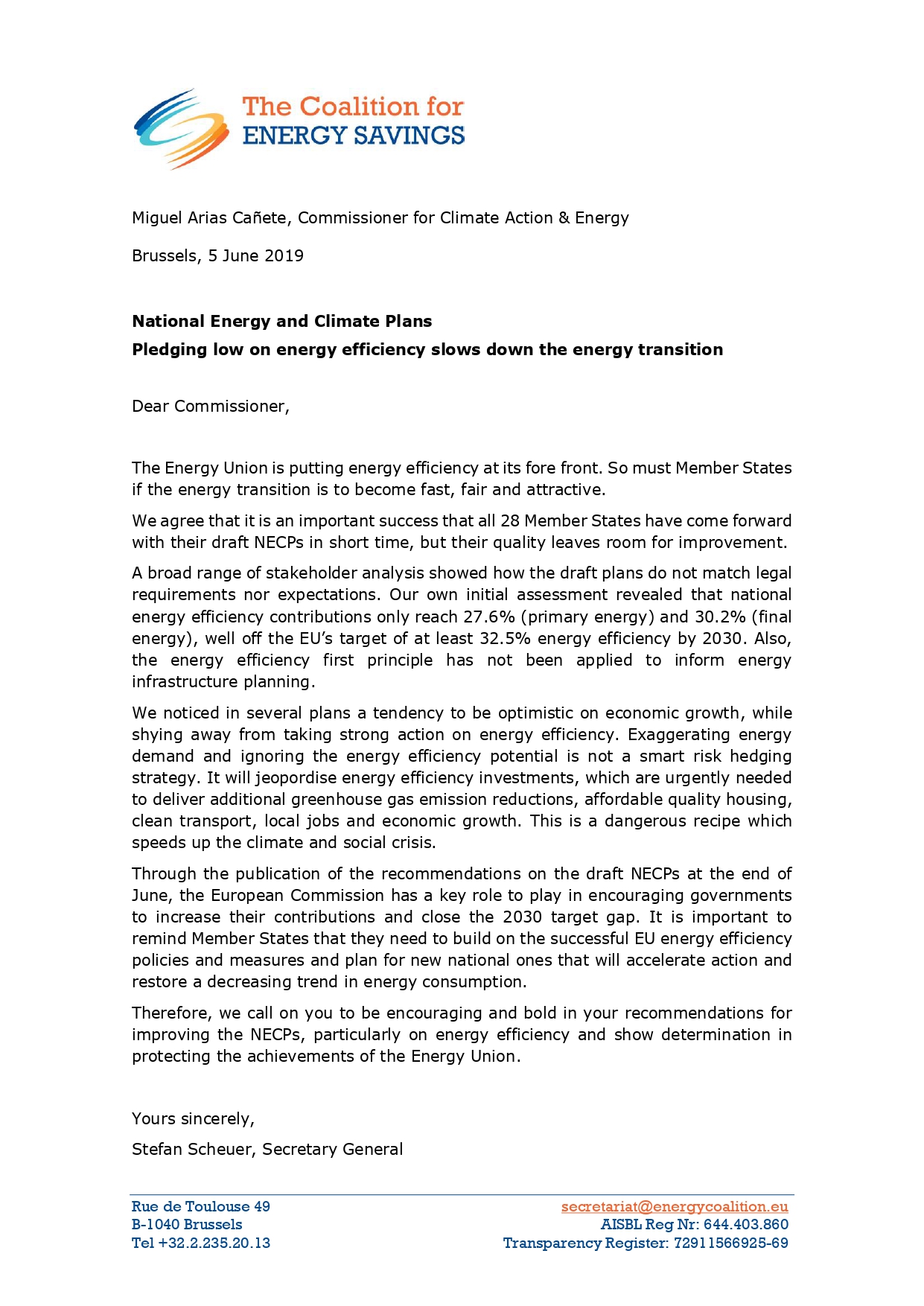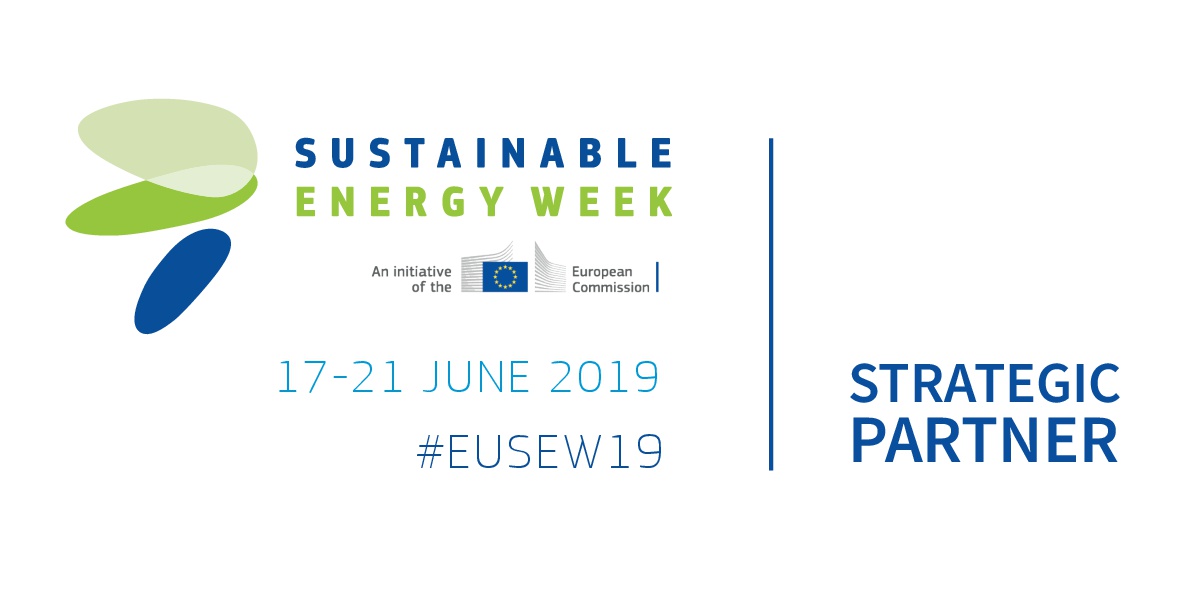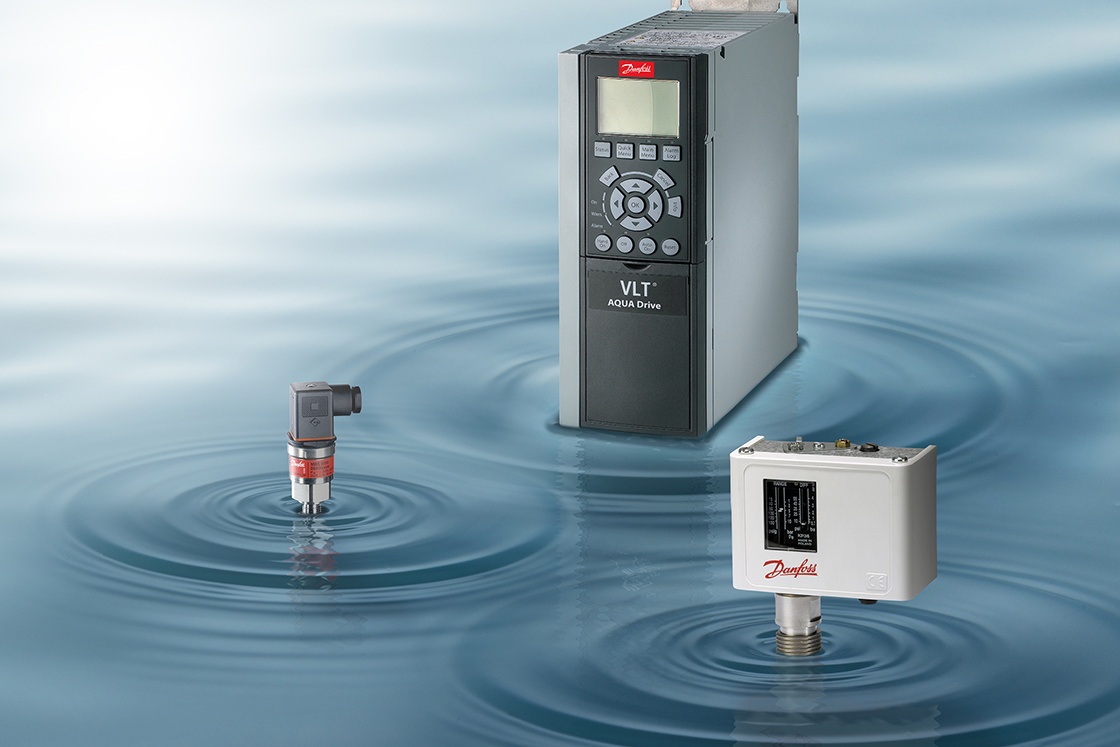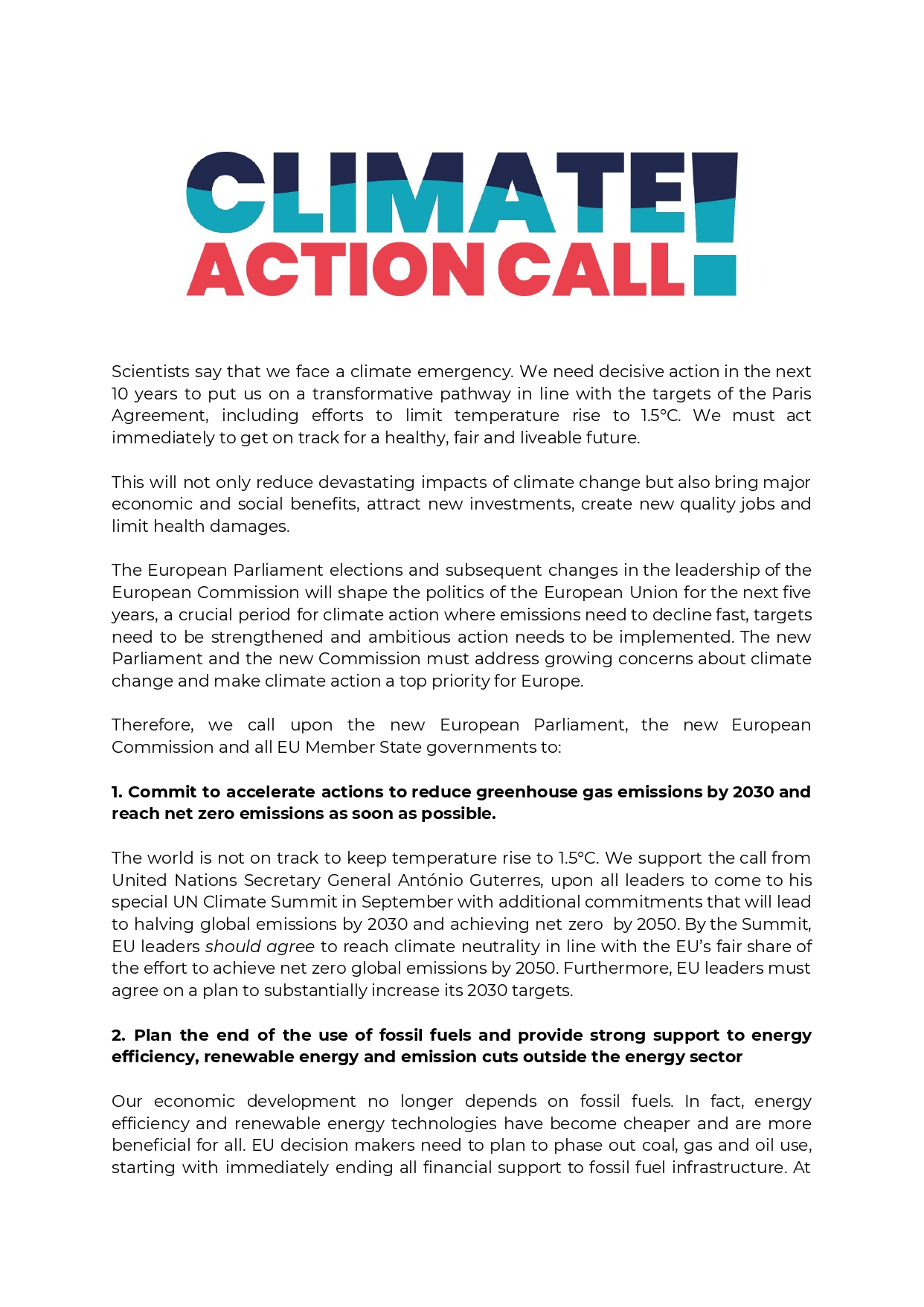National Energy and Climate Plans – Pledging low on energy efficiency slows down the energy transition

To: Miguel Arias Cañete, Commissioner for Climate Action & Energy
Brussels, 5 June 2019
National Energy and Climate Plans
Pledging low on energy efficiency slows down the energy transition
Dear Commissioner,
The Energy Union is putting energy efficiency at its fore front. So must Member States if the energy transition is to become fast, fair and attractive. We agree that it is an important success that all 28 Member States have come forward with their draft NECPs in short time, but their quality leaves room for improvement.
A broad range of stakeholder analysis showed how the draft plans do not match legal requirements nor expectations. Our own initial assessment revealed that national energy efficiency contributions only reach 27.6% (primary energy) and 30.2% (final energy), well off the EU’s target of at least 32.5% energy efficiency by 2030. Also, the energy efficiency first principle has not been applied to inform energy infrastructure planning.
We noticed in several plans a tendency to be optimistic on economic growth, while shying away from taking strong action on energy efficiency. Exaggerating energy demand and ignoring the energy efficiency potential is not a smart risk hedging strategy. It will jeopardise energy efficiency investments, which are urgently needed to deliver additional greenhouse gas emission reductions, affordable quality housing, clean transport, local jobs and economic growth. This is a dangerous recipe which speeds up the climate and social crisis.
Through the publication of the recommendations on the draft NECPs at the end of June, the European Commission has a key role to play in encouraging governments to increase their contributions and close the 2030 target gap. It is important to remind Member States that they need to build on the successful EU energy efficiency policies and measures and plan for new national ones that will accelerate action and restore a decreasing trend in energy consumption.
Therefore, we call on you to be encouraging and bold in your recommendations for improving the NECPs, particularly on energy efficiency and show determination in protecting the achievements of the Energy Union.
Yours sincerely,
Stefan Scheuer, Secretary General 2
The Coalition for Energy Savings strives to make energy efficiency and savings the first consideration of energy policies and the driving force towards a secure, sustainable and competitive European Union. Its membership unites businesses, professionals, local authorities, cooperatives, consumer and civil society organisations in pursuit of this goal.
Coalition members represent:
- more than 500 associations, 200 companies, 1,500 cooperatives
- 15 million supporters and 1 million citizens as members of cooperatives
- 2,500 cities and towns in 30 countries in Europe
Members of the Coalition:
ACE – Architects’ Council of Europe | APPLiA – Home Appliance Europe | BEUC – The European Consumer Organisation | BPIE – Buildings Performance Institute Europe (advisory member) | CAN – Climate Action Network – Europe | CEE Bankwatch Network | ClientEarth | Climate Alliance | E.V.V.E. – European Association for the Consumption-based Billing of Energy Costs | E3G | eceee – European Council for an Energy Efficient Economy | ECOS – European Environmental Citizens Organisation for Standardisation | EEB – European Environmental Bureau | EFIEES – European Federation of Intelligent Energy Efficiency Services | ehi – Association of the European Heating Industry | Energy Cities | EPEE – European Partnership for Energy and the Environment | eurima – European Insulation Manufacturers Association | EuroACE – The European Alliance of Companies for Energy Efficiency in Buildings | European Alliance to Save Energy | European Climate Foundation | European Copper Institute – Copper Alliance | Friends of the Earth Europe | Glass for Europe | Housing Europe | PU Europe – European Association of Polyurethane Insulation Manufacturers | RAP – The Regulatory Assistance Project (advisory member) | REScoop.eu | T&E – Transport & Environment | WWF European Policy Office
In a fast-changing political and economic environment, 2025 was a year of continued efforts to strengthen security, stability, and competitiveness for European businesses.
Throughout the year, our work demonstrated that energy efficiency is not only essential to achieving climate goals, but also a key driver of innovation, energy independence and sustainable long-term growth across Europe.
Strong engagement with policymakers, combined with the successful organisation of the 4th European Energy Efficiency Day, highlighted the importance of collaboration and dialogue in advancing shared objectives. Partnerships across sectors and institutions remained central to delivering impact and shaping effective energy policies.
Looking ahead to 2026, we will intensify our efforts to secure the regulatory certainty that can accelerate the energy transition, while providing businesses with the investment confidence they need and strengthening Europe’s competitiveness.
Read the full Activity Report here.




